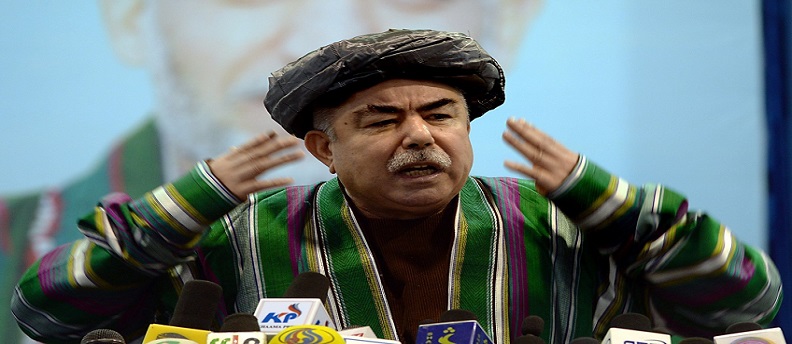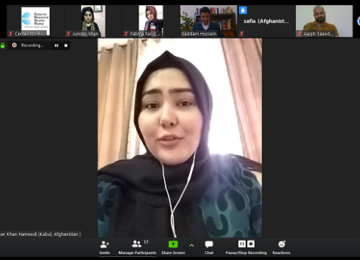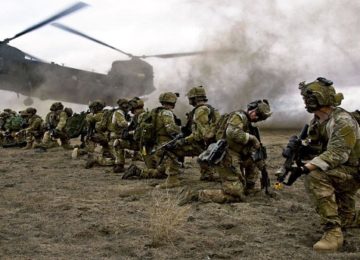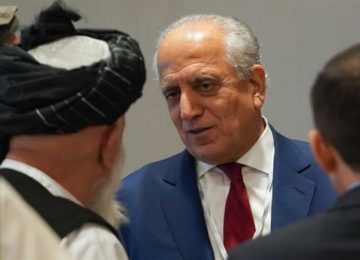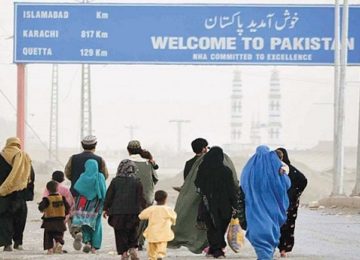The United States has stressed that a “fair and transparent” probe into allegations of rape and assault against Afghanistan’s controversial first vice president and “possible follow-up legal actions” are key to upholding the rule of law and combating impunity in the country.
First Vice President Abdul Rashid Dostum, an ethnic Uzbek warlord, and some of his militia guards have been under investigation for months over allegations of sexually assaulting an elderly political rival.
But in late May, Dostum, 63, flew to Turkey, saying he needed health care. He remains in Turkey, and his departure has prompted allegations he struck a secret deal with Afghan President Ashraf Ghani to escape prosecution.
Hugo Llorens, the acting U.S. ambassador to Afghanistan, said Tuesday in Kabul that the charges against Dostum were “extremely serious” and warranted close review by Afghan judicial authorities.
Former governor accuses
“Afghans have the right to demand that human rights be respected, the rule of law be upheld and those who violate the public trust are held accountable regardless of position or influence,” Llorens said to a group of journalists.
Late last year, Ahmad Ishchi, a former provincial governor, said in a nationally televised interview that Dostum’s militia forces had detained and sexually assaulted him. Ishchi said Dostum had ordered the detention and abuse.
The warlord rejected the accusations as politically motivated, and he refused to cooperate with investigators. But the incident outraged critics at home and abroad, putting Ghani under pressure to bring Dostum to justice.
The U.S. envoy said that like other Afghan citizens, the first vice president deserved due process and the presumption of innocence. He emphasized that the legal process underscored the Afghan state’s efforts to uphold the rule of law, combat impunity and send a signal to the world that no one is above the law in Afghanistan.
“Any efforts to politicize the case or use it to sow ethnic tensions are harmful to the rule of law, peace and stability in Afghanistan. I believe the Afghan authorities must pursue justice and not succumb to any political pressures,” Llorens said.
Three-party alliance
The American diplomat apparently was referring to a new alliance of three mainstream Afghan ethnic minority political parties. The political group comprises Jamiat-e-Islami, Hizb-e-Wahdat-e-Islami and Dostum’s Junbish-e-Milli party.
The alliance was announced from Turkey this month, and it presented a list of demands for reforms by Ghani.
Some of Dostum’s critics say he is behind the political move to pressure the beleaguered Afghan unity government to seek a favorable outcome from the investigation into the Ishchi allegations.
Leaders of the other two parties in the alliance also hold senior positions in the government.
Hours before the U.S. ambassador spoke, Ghani told reporters in Kabul that his government was “totally neutral” in the judicial proceedings involving Dostum.
He said the first vice president left the country with the permission of the Afghan attorney general because the laws do not bar someone suspected of wrongdoing from seeking medical treatment abroad “if he is ill, and he [Dostum] had a serious illness.”
This article originally appeared on www.voanews.com, July 11, 2017. Original link.
Disclaimer: Views expressed in the article are not necessarily supported by Afghan Studies Center.



